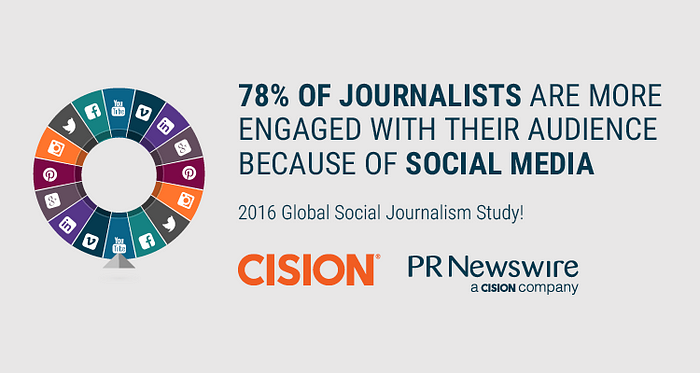Morgan Podkul
mp017819@ohio.edu
Journalism is a universal practice to keep the public accurately updated and informed. The onset of social media opened another avenue for journalists to share news as it happens. However, new additions to the journalism world introduce new challenges.
Journalists now have to be careful not only to provide the public with accurate news on time but also to manage their new online presence. This added aspect of the job is tedious and can quickly harm a journalist's reputation.
 |
| Photo from Medium |
An article posted by Ryan Guerreo on Medium.com investigates what changes or guidelines are necessary for journalists to navigate the social media world properly. The most tedious part of journalists joining the social media world is the possible room for error. When journalists begin to define themselves as a social media presence, they become heavily scrutinized and studied.
Ethics and professionalism are combined and leave very little space for journalists to make mistakes. In addition, reporting on social media requires an even balance of personality, opinion, and fact. Guerreo's article highlights the importance of connecting with followers while maintaining a passive-enough presence to avoid offending any users.
Ethics, in the case of social media, are also strained due to the change in journalistic style. In Illuminate, an article by Kurt Wagnera, part of Santa Clara University, defines the change in "clickiness" that the journalism world sees as social media becomes more popular. This change affects where news is showing up and to whom it is presented.
Journalists who post their news on social media are now forced to adapt to popularity among their audience. In the example from the article, Facebook began to promote video news and news posted directly to the Facebook site. This forces journalists to adapt to these changes to maintain their audience on that specific website.
Wagner's article also touches on the ethics challenged when posting news on social media. Having a social media account allows readers to feel connected to journalists. That allows individual writers to prosper and develop their group of supporters. The only negative is that mistakes are criticized more intensely. Therefore, ethics are challenged because a connection will leave followers more personally offended in the case of a bias or mistake.
Ethics are challenged and changed in journalism daily. That is true both for the publishing companies and for the individual writers. In addition, news-making's shift to social media is altering the industry's ethics. Journalists have to be hyper-aware of their online presence and need to find a way to be both personable and unbiased in their deliveries. The key is finding a middle ground. Here, writers can form a bond with their readers while still respecting the opinions and differences of said readers.
No comments:
Post a Comment